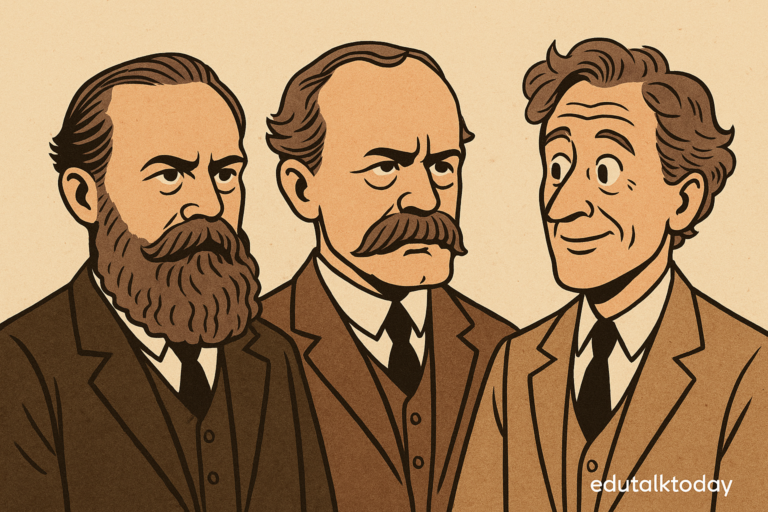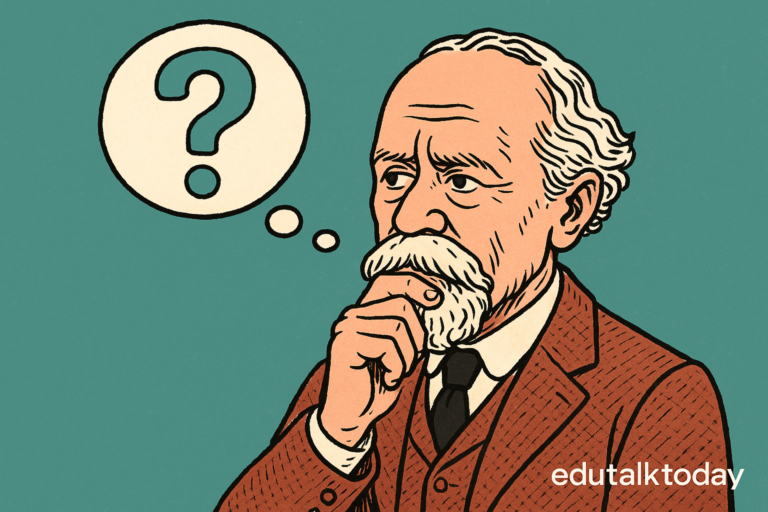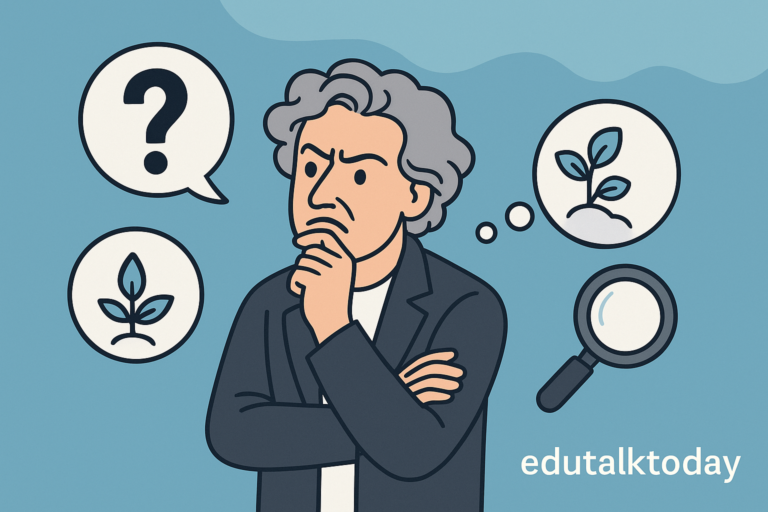Camus and the Myth of Sisyphus
The Myth of Sisyphus is everywhere.
It’s on posters, coffee mugs, Reddit threads, and intro-to-philosophy syllabi. But somehow, even after decades of scholarship, I keep coming back to that image: the man pushing the rock uphill, fully aware it will roll back down, yet doing it anyway.
Camus tells us we must imagine Sisyphus happy, and we quote it like it’s a mic drop. But I think we often forget: Camus wasn’t just telling us a poetic story about struggle.
He was laying out an entire philosophical method—a way of confronting meaninglessness without falling into despair or illusion. That tension—the sharp edge between our hunger for meaning and the silence of the universe—is where absurdism lives.
So, if we take that seriously, it raises a real question: What exactly are we doing when we “embrace” the absurd?
And are we even interpreting Camus as deeply as we think?
The Absurd Isn’t Just Fancy Nihilism
I’ve lost count of how many times I’ve heard people conflate Camus’s absurdism with nihilism. I get it—it sounds nihilistic at first.
A meaningless universe?
‘No transcendent truth?
No divine moral order?
That can sound like a recipe for despair. But Camus is doing something completely different here, and that difference is actually the whole point.
First off, let’s go back to how he defines the absurd. For Camus, it’s not just that life has no objective meaning.
It’s that humans keep demanding meaning from a world that doesn’t offer any. That conflict, not the lack of meaning itself, is what creates the absurd. It’s like a cosmic mismatch: the universe is mute, and we keep screaming questions at it.
Now, here’s where it gets interesting. A nihilist typically says, “Well, nothing matters, so who cares?”
Camus refuses to go there.
He says that the absurd demands something else: lucid confrontation, not withdrawal. We’re supposed to look the absurd straight in the face and still choose to live.
That’s not passive resignation—it’s active rebellion.
What’s especially clever is how Camus dodges the classic existentialist moves. Sartre tries to create meaning through freedom and choice. Kierkegaard takes a “leap of faith” toward God.
Even Nietzsche, in his own way, rebuilds a value system after killing God. But Camus says, “Nope. I’m not replacing meaning with anything. I’m staying right here—in the gap.”
He calls it a “philosophical suicide” when people jump to a system just to avoid absurdity. It’s not just about God or religion—he also means ideological systems, utopias, even certain brands of rationalism.
Camus wants to know: Can we live fully without pretending we’ve solved the riddle?
Let me give a concrete example. Think about Ivan in Dostoevsky’s The Brothers Karamazov. Ivan realizes the world’s suffering doesn’t make sense, and he can’t stomach a divine plan that would justify it.
He rebels.
Camus loves this—he actually says Ivan’s rebellion is “noble,” except Ivan ultimately withdraws. He can’t bear the contradiction. Camus’s absurd hero doesn’t do that.
He bears it.
He lives inside it.
And that’s where Camus sneaks in this idea of revolt—not a political revolution (though he later flirts with that in The Rebel), but an existential stance. It’s a refusal to flinch, to lie, or to look away.
He even says: “The absurd is the contrary of hope,” but we still have to hope in a new way—without illusions.
What I think we miss, sometimes, is that this is a form of freedom. Not freedom to become anything, à la Sartre, but freedom from justification. You don’t have to explain your life in cosmic terms anymore.
You just live it. And when Camus talks about joy or happiness in that context, he doesn’t mean a dopamine hit—he means a kind of fierce serenity. A clarity.
So no, Camus isn’t a nihilist.
He’s what you get when you go all the way to the edge and don’t jump. He’s not mourning the loss of meaning—he’s exploring what becomes possible once you stop pretending it was ever there.
Rethinking Sisyphus
So here’s the part I really want to wrestle with: we keep getting Sisyphus wrong. The image of him eternally pushing the boulder is iconic—but let’s admit it, most people read it in this overly romantic, Nietzschean way.
It’s all grit and defiance, like some philosophical Rocky montage. But if we really read Camus closely, that’s not quite what’s happening.
Let’s zoom in on the most overlooked part of the myth—the moment after the boulder rolls down, when Sisyphus walks back down the mountain.
That’s where Camus says: “That is the hour of consciousness.” And that line has always stopped me in my tracks.
Because it’s not the pushing that defines Sisyphus—it’s his awareness of the pushing.
The absurd isn’t in the labor; it’s in the knowledge that the labor will never end, and yet he still returns to it.
Now, here’s where I want to push a bit: What if Camus isn’t just celebrating rebellion, but rhythm?
Think about it.
Sisyphus is in a loop, yes, but that loop becomes his entire world. There’s something almost meditative about it.
The repetition doesn’t destroy him—it defines him. I think Camus is saying: look, if you can find clarity and presence in that loop, then even in the most meaningless task, you can experience a form of liberation.
That’s not to say we should fall into Zen minimalism or pretend suffering is beautiful.
Camus never aestheticizes pain.
But he does think that clarity and consistency—lucidity, as he puts it—are ethical conditions. Sisyphus isn’t noble because he suffers; he’s noble because he doesn’t lie to himself about the nature of his suffering.
And here’s something I rarely see discussed: Camus is not describing a tragic figure. He insists Sisyphus is not defeated. If he were, he wouldn’t be conscious. In fact, Camus goes so far as to say that “the struggle itself toward the heights is enough to fill a man’s heart.”
That’s not resignation—that’s reinterpretation.
There’s also a huge philosophical risk Camus is taking here. He’s suggesting that meaning doesn’t have to precede value.
That’s a radical move. We’re so used to thinking that value stems from some external justification—God, ethics, legacy, history. But Camus flips that. Sisyphus’s labor has no outcome, no telos, and yet it still has value—because it’s lived.
Let me offer a real-world parallel. Think about caregiving—caring for a loved one with dementia, for example.
It’s repetitive, exhausting, sometimes heartbreaking. There’s no “progress.” Yet people do it with love, integrity, and presence. There’s no grand narrative. But that doesn’t make it meaningless.
In fact, it might be one of the most authentically human acts. That’s the absurd hero in practice.
So no, Sisyphus isn’t just about struggle. He’s about awareness, rhythm, and fidelity to the real. And I think Camus wants us to see that the absurd life isn’t a life of defiance—it’s a life of attention.
Five Conditions for Absurd Joy
At this point, I want to shift gears a bit and get more concrete. Because if we take Camus seriously—and not just poetically—then we’re left with a really important question: What does it actually mean to live an absurd life joyfully? Not just stoically. Not tragically. But joyfully.
Camus never gives us a step-by-step manual, but I think we can sketch out five core conditions that show up across The Myth of Sisyphus, The Rebel, and even his essays like Summer in Algiers.
These aren’t self-help tips. These are ontological commitments. Let’s walk through them.
1. Lucidity Without Illusion
This is the foundation. Camus says the absurd begins when we become conscious of the contradiction between our desire for meaning and the universe’s silence. But he refuses to lie.
He calls it “the constant presence of man in a universe he cannot explain.” That’s the first move: no gods, no utopias, no rationalist illusions.
Lucidity means we stop asking why and start asking how—how to live within the absurd honestly.
2. Repetition With Variation
This one’s subtle. Sisyphus doesn’t just repeat endlessly—he repeats consciously. In this way, Camus’s absurd hero actually prefigures ideas from later thinkers like Deleuze, who talks about “difference within repetition.”
Even if the form repeats, the experience doesn’t have to.
We can see this in daily life. Morning routines. Creative practice. Parenting. The absurd life doesn’t resist repetition—it engages it, but without dullness. That’s the trick.
3. Ethical Non-Transcendence
This one’s huge. Camus makes a strong ethical claim: if we accept the absurd, we can no longer appeal to higher authorities for moral justification—not religion, not ideology. But we’re still responsible for our choices. That’s the absurd ethic.
In The Rebel, he says: “I rebel, therefore we exist.” It’s not about salvation—it’s about solidarity. Living well isn’t about obeying cosmic rules. It’s about acting in full knowledge of the stakes, without shortcuts.
4. Embrace of Finitude
Camus doesn’t mourn death—he folds it into the absurd. Mortality isn’t a tragedy; it’s a condition for intensity. In Summer in Algiers, he talks about sunlit bodies and sea spray and says that true joy is rooted in presence—in knowing time is limited and still choosing to feel everything fully.
This might be Camus’s most poetic gesture: a life without afterlife, and still rich in sensation.
5. Rebellion Without Utopia
Finally, Camus’s idea of rebellion isn’t about building heaven on earth. He’s deeply suspicious of utopian thinking—he sees how it justifies violence in the name of abstract ideals. Instead, he argues for rebellion as a mode of fidelity to human dignity.
This rebellion doesn’t need to “win.” It just needs to continue. That’s why Sisyphus is happy—because he keeps going, not because he hopes the outcome will change.
So when Camus talks about absurd joy, he’s not offering us a workaround. He’s showing us a path through. And it’s not a path of despair—it’s a path of integrity, attention, and refusal.
Final Thoughts
If we strip away all the misreadings—the tragic hero, the misunderstood nihilist, the proto-existentialist—what we’re left with is a deeply radical Camus. A philosopher of the everyday, the finite, the clear-eyed.
To imagine Sisyphus happy isn’t to imagine him content—it’s to imagine him awake. Fully present. And maybe that’s the hardest thing of all. But it might also be the most beautiful.
Let me know if you want to keep going—there’s a lot more in Camus’s notebooks and letters that can add depth here.





